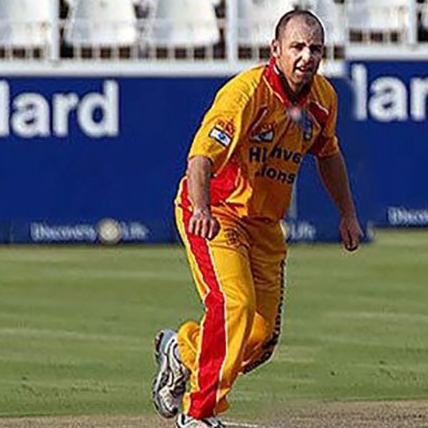
News

Bacher on the plight of SA cricket
LUKE ALFRED
The passage of play was excruciating for Bacher, even from a distance. During his 19 Tests, he twice experienced the heartbreak of losing his wicket just short of three figures, so well did he understand the depth of Van der Dussen’s agony.
When asked if he could feel the stone in Van der Dussen’s heart as he trudged back to the dressing-room, Bacher replied with pathos, “I can, I can – I really can.”
The distress caused by Van der Dussen’s dismissal was difficult to accept in other ways, suggestive, as it was, of a broader cricket crisis. The Proteas lost the series 3-1, and there have been no South African centuries this summer. Temba Bavuma’s omission from the squad until the fourth Test was so unpopular, it prompted an outpouring of bile on Twitter.
The elevation of a “white cabal” with new coach Mark Boucher at its helm hasn’t been universally accepted, and there’s a populist critique which argues that Cricket South Africa (CSA) has lost sight of its transformation goals as a widely-derided board continues to cling to power.
Historians of the game might look back on the summer of 2019/2020 as a watershed season – the word Bacher uses is “crossroads” – in which South Africa slipped out of the top tier of cricketing nations.
The four Tests against England have shown us to be competitive – but only just – the Proteas losing three Tests on the reel after the opening win in the Boxing Day Test at Centurion. “We’re still a team who struggle to play on good wickets,” says Bacher. “As soon as we get onto good wickets, like those at Newlands and St Georges, we really battle to take 20 wickets. That wasn’t the case with England at all.
“The Centurion wicket was the one where Vernon [Philander, who played his last Test at the Wanderers] came into his own but after that, our bowlers struggled and our batsmen just didn’t get on top. There have been claims floating about in our cricket for some time that we’ve been preparing spicy wickets – I can’t see how that’s going to help in the long run.”
As hinted at earlier, Bacher sees the game as being at a fork in the road. “South African cricket is at a huge crossroads,” he says. “There is so much dust floating around that it is difficult to have a proper discussion about what’s wrong. We are no longer the kind of sporting nation we once were, and I don’t think that reality has really hit home. This isn’t the kind of discussion that can take place on Twitter, and we’re not going to find the answers there either.”
Bacher knows what he’s talking about because he was part of a group tasked by CSA with finding reasons for South Africa’s deeply disappointing loss to New Zealand in the 2015 World Cup semi-final in Auckland. For various reasons that report (which also had Francois Pienaar on the panel) was shelved, but it was resuscitated after the Proteas’ equally disappointing showing in the World T20 tournament in India in March 2016, in which they failed to reach the semi-finals.
Some of the recommendations of the second report – like the appointment of a director of cricket – have belatedly come to pass, but that report also fell on deaf ears, with the authorities reluctant, thinks Bacher, to address the issues raised within it because when it was submitted, cricket was in a temporary upswing. “We addressed the idea of culture in the team,” he says, “arguing that we were almost looking for an All Black approach to team culture where the culture is always bigger than the individual.”
“We also saw coaching as a big area of concern, and often not quite good enough to produce the players we need for Test cricket. Coaching is very good at the schools generally, it’s just that out of school, there’s almost a downscale because coaching suddenly isn’t as good. It’s an inverted system.”
The report Bacher was part of interviewed current Proteas and management staff, former players, coaches and administrators – about 40 people in all – and took months to compile.
Bacher finds it slightly ironic in the wake of the Test series loss to England that lessons weren’t heeded at the time, pointing out that Pienaar gave up his time for months, as did he. They were only ever reimbursed their expenses.
Bacher is pleased that some of the report’s recommendations have been implemented, but remains deeply concerned about the future. “I think the next six months are going to be very noisy,” he says. “You’ve got ultimatums from some major sponsors that the board at CSA still needs to go, and you’ve got a forensic audit pending on [former Chief Executive] Thabang Moroe. I don’t think that things are going to get any easier.”




